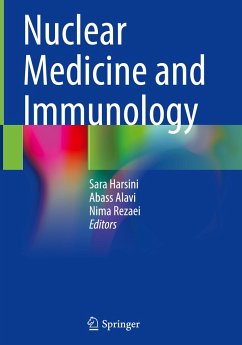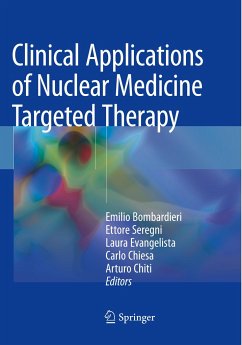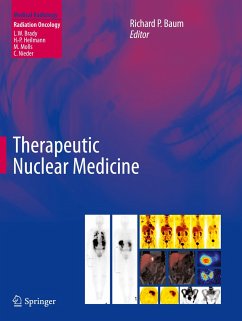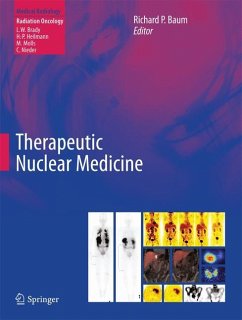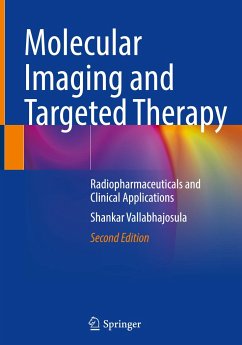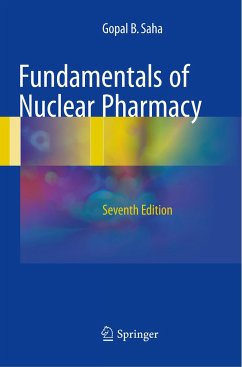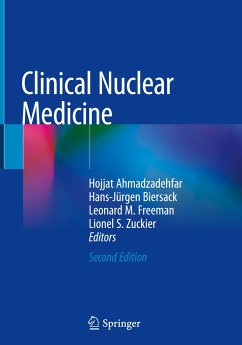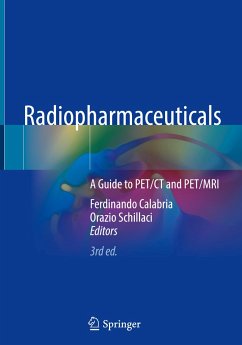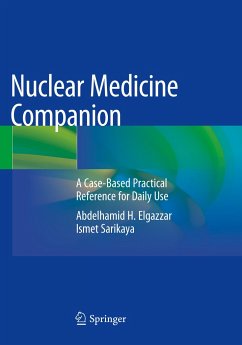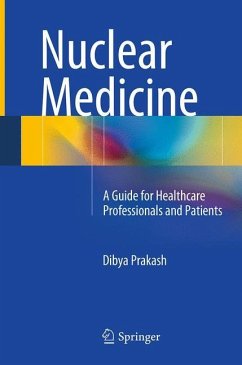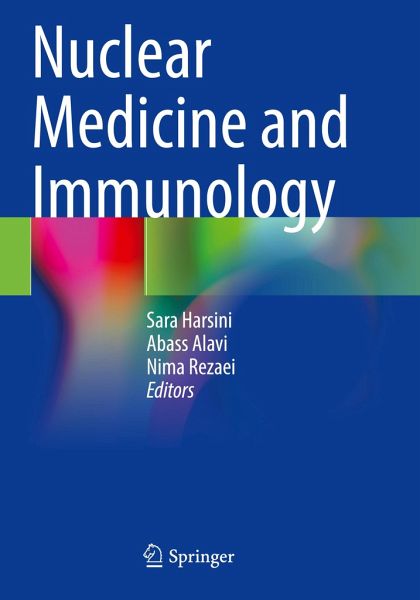
Nuclear Medicine and Immunology
Versandkostenfrei!
Versandfertig in 1-2 Wochen
75,99 €
inkl. MwSt.

PAYBACK Punkte
38 °P sammeln!
This book explores the close connection between immunology and nuclear medicine, which has led to radioimmunoimaging and radioimmunotherapy (RIT).Molecular imaging with positron emission tomography (PET) and single-photon emission computed tomography (SPECT) is increasingly being used to diagnose, characterize, and monitor disease activity in the context of inflammatory disorders of known and unknown etiology, such as sarcoidosis, atherosclerosis, vasculitis, inflammatory bowel disease, rheumatoid arthritis, and degenerative joint disease. The first chapters discuss the various radiopharmaceut...
This book explores the close connection between immunology and nuclear medicine, which has led to radioimmunoimaging and radioimmunotherapy (RIT).
Molecular imaging with positron emission tomography (PET) and single-photon emission computed tomography (SPECT) is increasingly being used to diagnose, characterize, and monitor disease activity in the context of inflammatory disorders of known and unknown etiology, such as sarcoidosis, atherosclerosis, vasculitis, inflammatory bowel disease, rheumatoid arthritis, and degenerative joint disease. The first chapters discuss the various radiopharmaceutical agents and radiolabeled preparations that have been employed in inflammation imaging. Of these, FDG-PET imaging has been shown to have the great value in the detection of inflammation and has become the centerpiece of several initiatives over the last several years. This very powerful technique will play an increasingly important role in the management of patients with inflammatory conditions in the future.
The book also explores the growing role of nuclear medicine and molecular imaging in the diagnosis and treatment of cancer. The rapid pace of change has been fueled by advances in our understanding of tumor biology, on the one hand, and the development of specifically targeted medical therapies, diagnostic agents, and radiotherapies, on the other.
Written by leading international experts in the field, this book is an invaluable tool for nuclear medicine physicians, radiologists, oncologists, and immunologists.
Molecular imaging with positron emission tomography (PET) and single-photon emission computed tomography (SPECT) is increasingly being used to diagnose, characterize, and monitor disease activity in the context of inflammatory disorders of known and unknown etiology, such as sarcoidosis, atherosclerosis, vasculitis, inflammatory bowel disease, rheumatoid arthritis, and degenerative joint disease. The first chapters discuss the various radiopharmaceutical agents and radiolabeled preparations that have been employed in inflammation imaging. Of these, FDG-PET imaging has been shown to have the great value in the detection of inflammation and has become the centerpiece of several initiatives over the last several years. This very powerful technique will play an increasingly important role in the management of patients with inflammatory conditions in the future.
The book also explores the growing role of nuclear medicine and molecular imaging in the diagnosis and treatment of cancer. The rapid pace of change has been fueled by advances in our understanding of tumor biology, on the one hand, and the development of specifically targeted medical therapies, diagnostic agents, and radiotherapies, on the other.
Written by leading international experts in the field, this book is an invaluable tool for nuclear medicine physicians, radiologists, oncologists, and immunologists.



